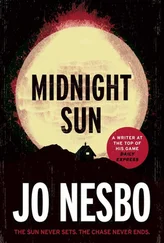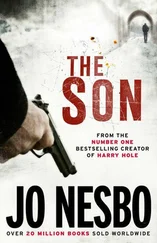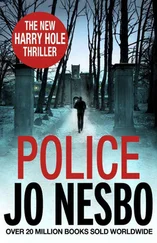Jo Nesbo - The Redbreast
Здесь есть возможность читать онлайн «Jo Nesbo - The Redbreast» весь текст электронной книги совершенно бесплатно (целиком полную версию без сокращений). В некоторых случаях можно слушать аудио, скачать через торрент в формате fb2 и присутствует краткое содержание. Жанр: Триллер, на английском языке. Описание произведения, (предисловие) а так же отзывы посетителей доступны на портале библиотеки ЛибКат.
- Название:The Redbreast
- Автор:
- Жанр:
- Год:неизвестен
- ISBN:нет данных
- Рейтинг книги:4 / 5. Голосов: 1
-
Избранное:Добавить в избранное
- Отзывы:
-
Ваша оценка:
- 80
- 1
- 2
- 3
- 4
- 5
The Redbreast: краткое содержание, описание и аннотация
Предлагаем к чтению аннотацию, описание, краткое содержание или предисловие (зависит от того, что написал сам автор книги «The Redbreast»). Если вы не нашли необходимую информацию о книге — напишите в комментариях, мы постараемся отыскать её.
The Redbreast — читать онлайн бесплатно полную книгу (весь текст) целиком
Ниже представлен текст книги, разбитый по страницам. Система сохранения места последней прочитанной страницы, позволяет с удобством читать онлайн бесплатно книгу «The Redbreast», без необходимости каждый раз заново искать на чём Вы остановились. Поставьте закладку, и сможете в любой момент перейти на страницу, на которой закончили чтение.
Интервал:
Закладка:
Then he placed his forty-odd schillings under the candelabrum, and they went out into the mild June evening. In Weihburggasse it was totally still, but the air was thick with the smell of smoke, dust and earth.
'Let's go for a walk,' Uriah said.
Without either of them saying a word about where to go, they turned right, up Karntner StraBe, and were suddenly standing in front of a darkened, deserted Stephansplatz.
'My God,' Uriah said. The enormous cathedral before them filled the young night sky.
'Stephansdom?' he asked.
'Yes.' Helena leaned her head backwards and her eyes followed the Sudturm, the green-black church spire, up, up towards the sky where the first stars had crept out.
The next thing Helena remembered they were standing inside the cathedral, surrounded by the white faces of the people who had sought refuge there, the sounds of crying children and organ music. They walked towards the altar, arm in arm, or had she only dreamed that? Had it really happened? Had he not suddenly taken her in his arms and said she would be his? Hadn't she whispered, Ja, Ja, Ja, as the void in the church seized her words and flung them up to the vaulted ceiling, the dove and Christ on the cross, where the words were repeated and repeated until it had to be true? Whether it had happened or not, the words were truer than those she had carried with her since her conversation with Andre Brockhard.
'I cannot go with you.'
They were said, but when and where?
She had told her mother the same afternoon, that she wasn't leaving, although she didn't give a reason. Her mother had tried to comfort her, but Helena couldn't stand the sound of her sharp, self-righteous voice and had locked herself in her bedroom. Then Uriah had come, knocked on the door, and she had decided not to think any more, but to let herself fall without any fear, without imagining anything except an eternal abyss. Perhaps he had seen that immediately she opened the door. Perhaps the two of them standing in the doorway had made a tacit agreement to live the rest of their lives in the hours they had before the train left.
'I cannot go with you.'
The name of Andre Brockhard had tasted like gall on her tongue, and she had spat it out. Together with the rest: the surety, the mother who was in danger of being thrown on to the street, the father who didn't want a decent life to return to, Beatrice who had no other family. Yes, all that was said, but when? Had she told him everything in the cathedral? Or after they had run through the streets down to FilharmonikerstraBe? Where the pavement was littered with bricks and shards of glass, and the yellow flames licked out of the windows in the old Konditorei, lighting their way to where they rushed into the opulent but now deserted blacked-out hotel reception, lit a match, arbitrarily took a key from the wall and sprinted up the stairs with carpeting so thick that they made no noise at all, ghosts who flitted along the corridors searching for Room 342. Then they were in each other's arms, tearing off each other's clothes as if they too were on fire, his breath burning against her skin; she scratched him till he bled and put her lips to the cuts afterwards. She repeated the words until it sounded like an incantation: I cannot go with you.'
When the air-raid siren sounded, signalling that the bombing was over for this time, they were lying entwined in the bloody sheets, and she wept and wept.
Afterwards everything merged into a maelstrom of bodies, sleep and dreams. When they had been making love and when she had only dreamed that they were making love, she didn't know. She had awoken in the middle of the night to the sound of rain, and knew instinctively that he was not by her side; she had gone to the window and stared down at the streets below being washed clean of the ash and soil. The water was already running over the edges of the pavement and an opened, ownerless umbrella sailed down the street towards the Danube. Then she had gone back to bed. When she awoke again it was light outside, the streets were dry and he was lying beside her, holding his breath. She looked at the clock on the bedside table. Two hours until the train left. She stroked his forehead.
'Why aren't you breathing?' she whispered.
I've just woken up. You aren't breathing, either.'
She snuggled up to him. He was naked, but hot and sweaty.
'So we must be dead.'
'Yes,' he said.
'You went somewhere.'
'Yes.'
She could feel him trembling.
'But you're back now,' she said.
Part Four
35
Container Port, Bjorvika.
29 February 2000.
Harry parked beside a workmen's hut on top of the only hill he could find in the flat quay area of Bjorvika. A sudden spell of mild weather had started to melt the snow, the snow was shining and it was simply a wonderful day. He walked between the containers piled up like gigantic Lego bricks in the sun, casting jagged shadows on the tarmac. The letters and symbols declared that they came from such distant climes as Taiwan, Buenos Aires and Cape Town. Harry stood on the edge of the quay, closed his eyes and imagined himself there as he sniffed in the mixture of sea water, sun-warmed tar and diesel. When he opened his eyes again, the ferry to Denmark slipped into his field of vision. It looked like a refrigerator. A fridge transporting the same people to and fro in a recreational shuttle service.
He knew it was too late to pick up on any leads from the meeting between Hochner and Uriah. It wasn't even certain that this was the container port where they had met; it could equally as well have been Filipstad. Nevertheless, he had still had hopes that the place would be able to tell him something, give his imagination the necessary prod.
He kicked a tyre that was protruding over the edge of the quay. Perhaps he should buy a boat so that he could take Dad and Sis out to sea in the summer? Dad needed to get out. The man who had once been so sociable had become a loner since Mum died eight years ago. And though Sis didn't get far under her own steam, you could often forget that she had Down's syndrome.
A bird dived with glee between the containers. The blue tit can reach a speed of twenty-eight kilometres an hour. Ellen had told him that. A mallard can reach sixty-two kilometres an hour. They both managed equally well. No, Sis wasn't a problem; he was more concerned about his father.
Harry tried to concentrate. Everything Hochner had said, he had written in his report, word for word, but now he focused on the man's face to try and remember what he hadn't said. What did Uriah look like? Hochner hadn't managed to say a great deal, but when you have to describe someone you usually begin with the most striking features, whatever stands out. And the first thing Hochner had said about Uriah was that he had blue eyes. Unless Hochner thought having blue eyes was particularly unusual, it would suggest that Uriah did not have any visible handicap or walked or talked in a particular way. He spoke both German and English, and had been to somewhere in Germany called Sennheim. Harry followed the Denmark ferry, which was making for Drobak. Well-travelled. Had Uriah been to sea? he wondered. Harry had looked it up in an atlas, even a German one, but he hadn't found anywhere called Sennheim. Hochner might have been making it up. Probably of no significance.
Hochner said that Uriah nurtured a hatred. So perhaps what he had guessed was right-that the person they were looking for had a personal motive. But what did he hate?
The sun disappeared behind the island of Hovedoya and there was an instant bite in the breeze off the Oslo fjord. Harry wrapped his coat tighter round him and walked back to his car. And the half a million? Had Uriah received it from a Mr Big or was this a solo job with his own funds?
Читать дальшеИнтервал:
Закладка:
Похожие книги на «The Redbreast»
Представляем Вашему вниманию похожие книги на «The Redbreast» списком для выбора. Мы отобрали схожую по названию и смыслу литературу в надежде предоставить читателям больше вариантов отыскать новые, интересные, ещё непрочитанные произведения.
Обсуждение, отзывы о книге «The Redbreast» и просто собственные мнения читателей. Оставьте ваши комментарии, напишите, что Вы думаете о произведении, его смысле или главных героях. Укажите что конкретно понравилось, а что нет, и почему Вы так считаете.












